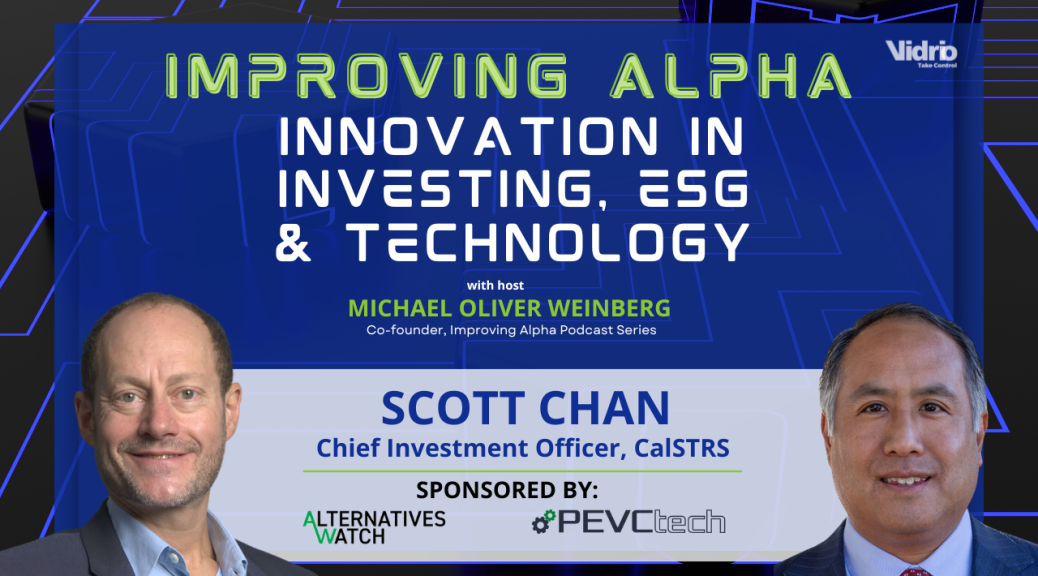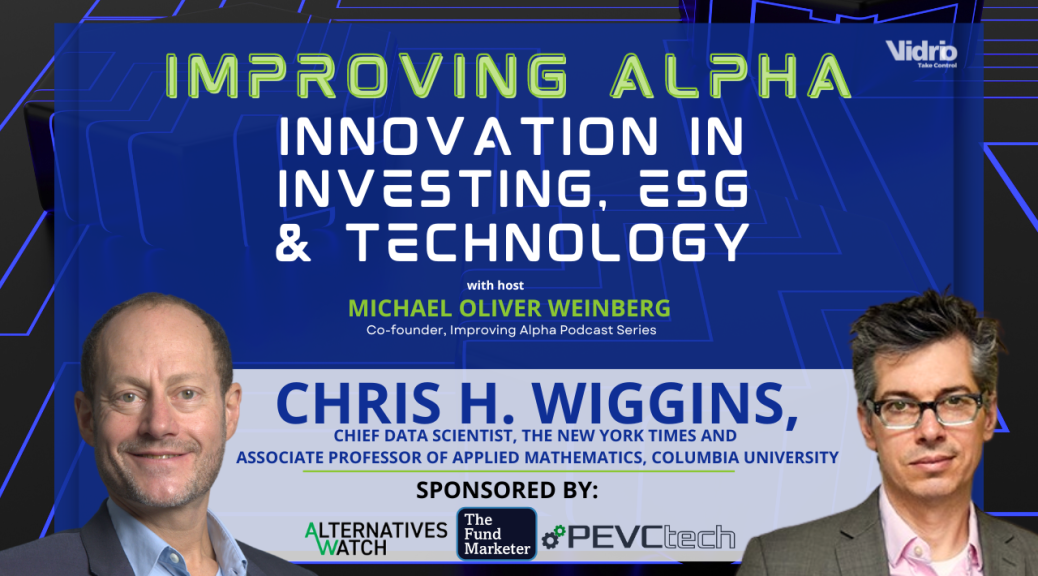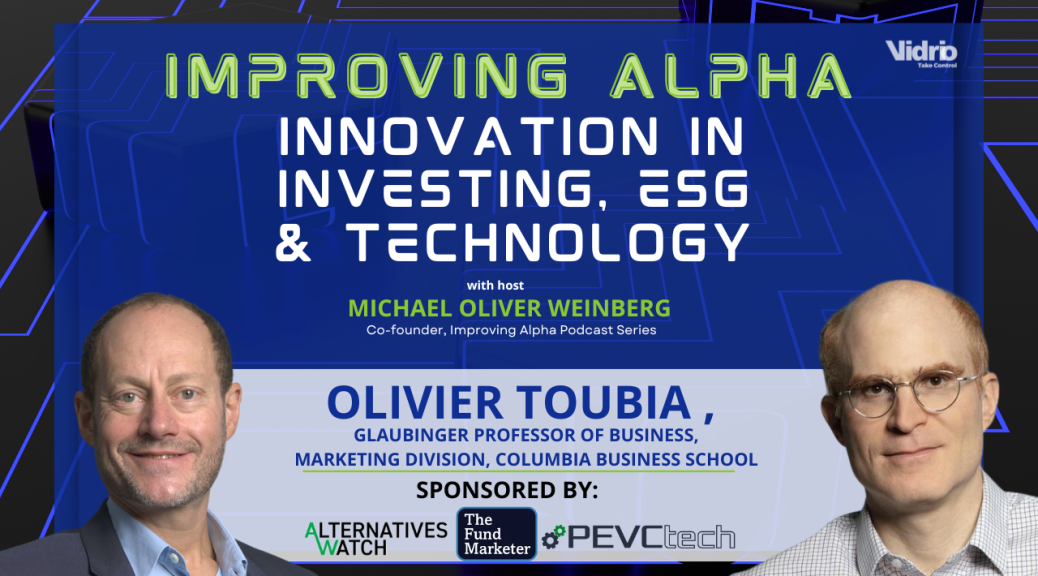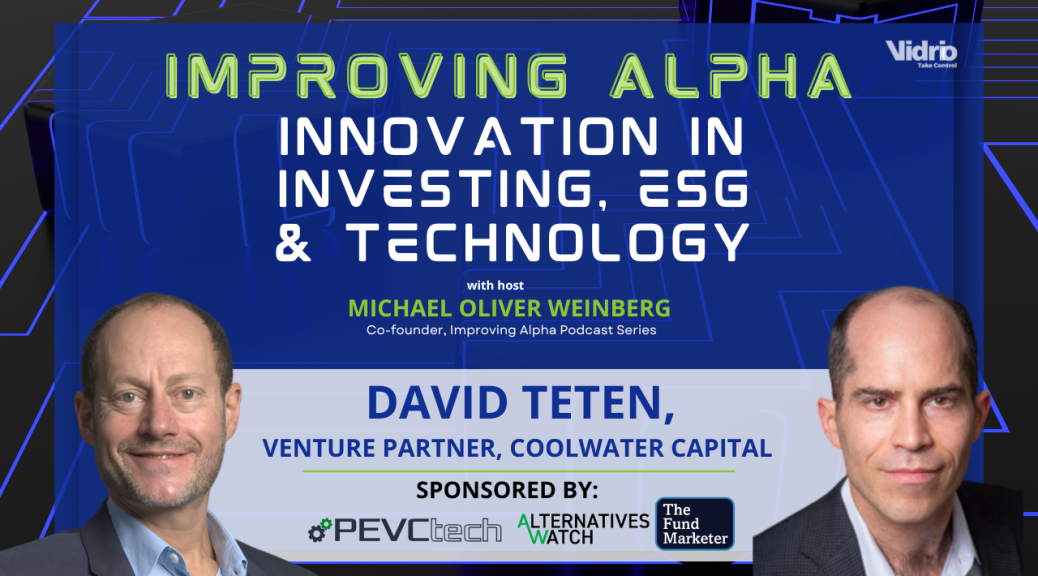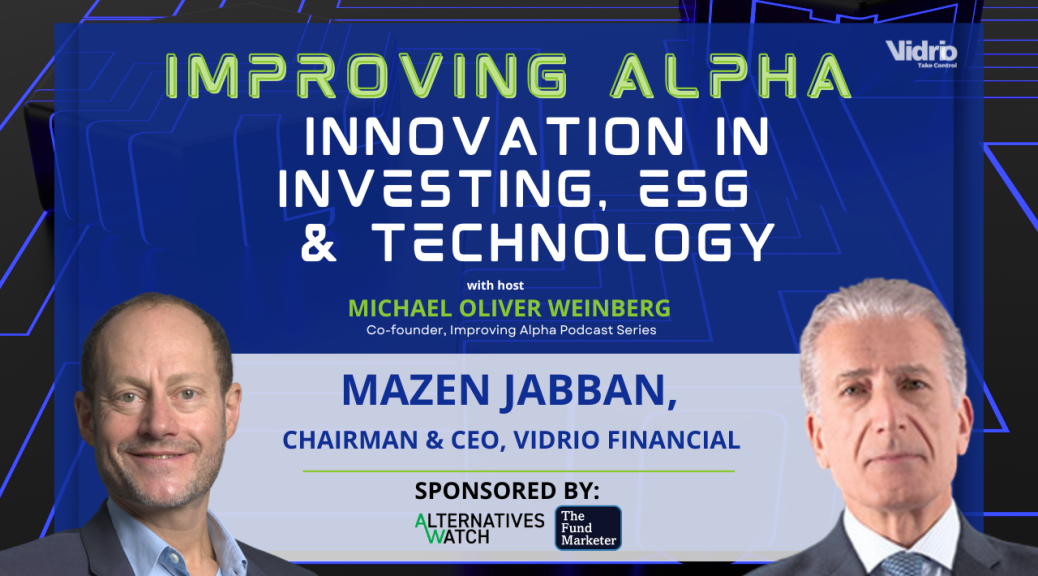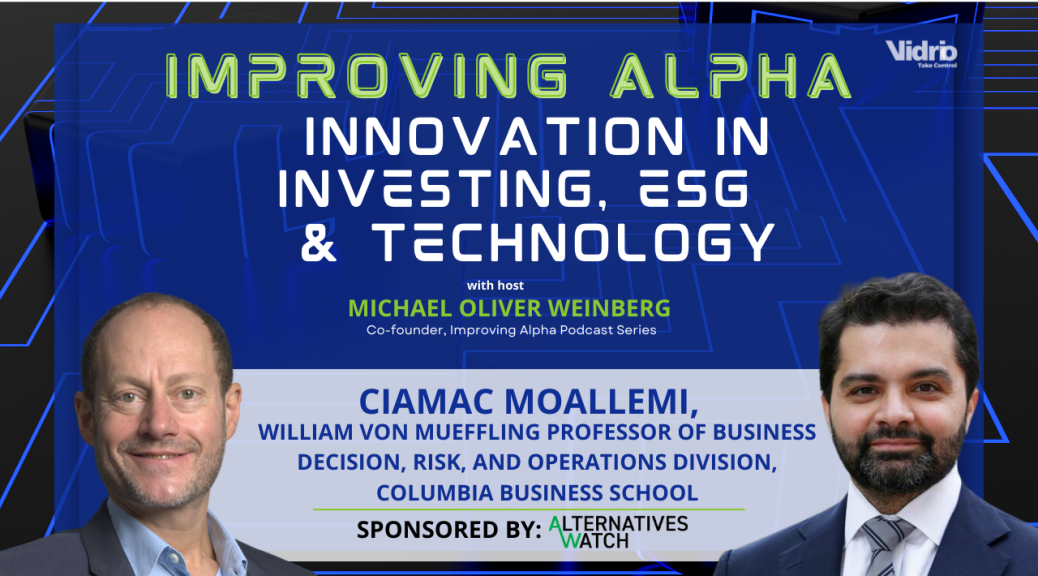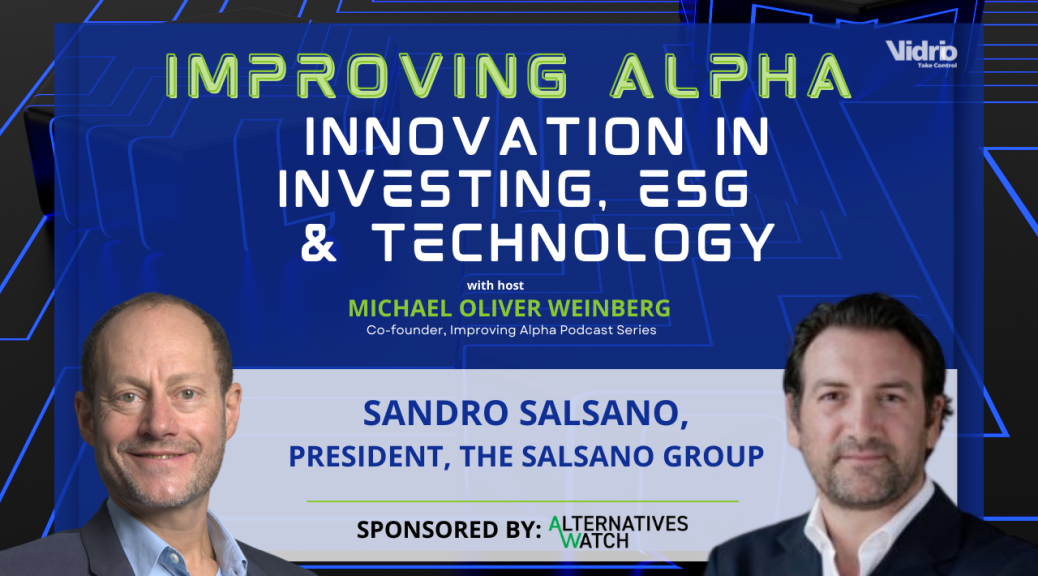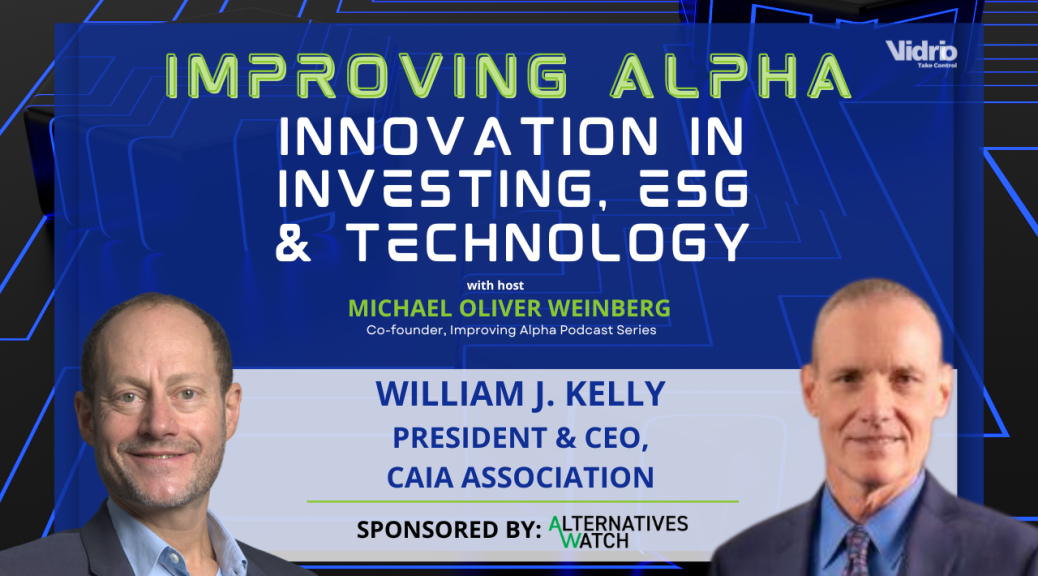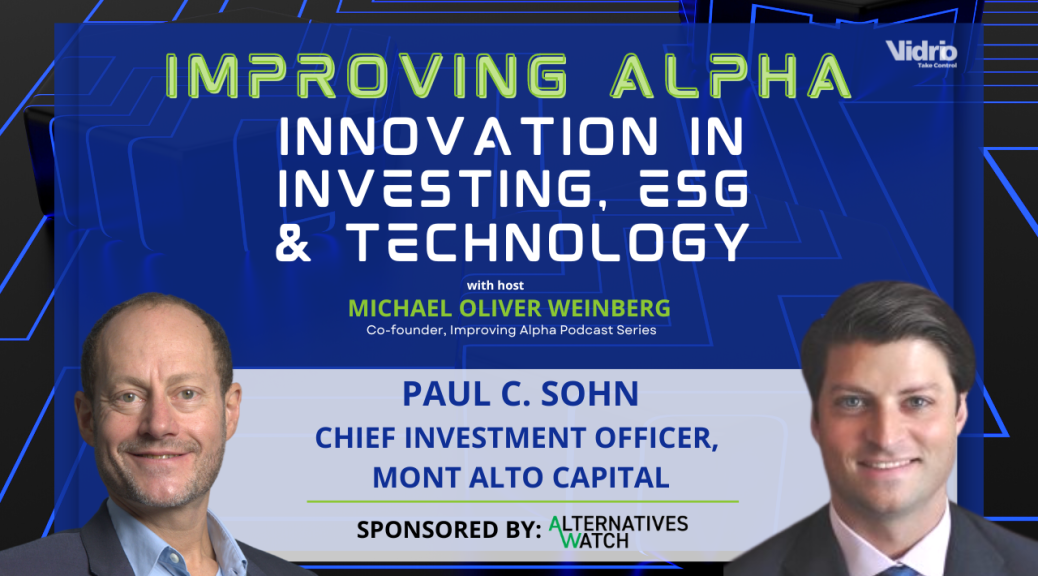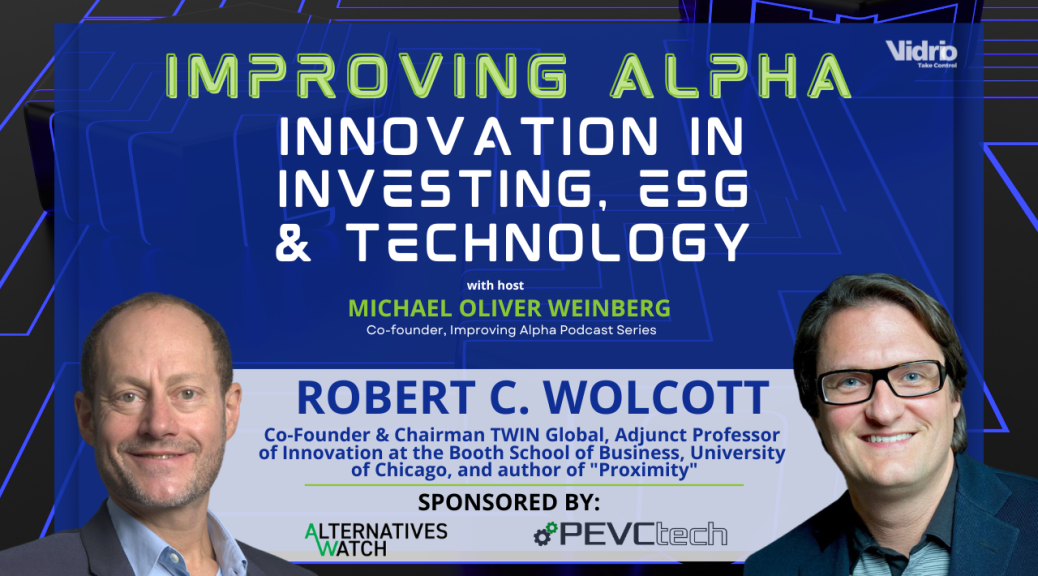
Improving Alpha: Robert Wolcott on the Proximity Revolution
Podcast: Play in new window | Download | Embed
Institutional investors are not only concerned with searching for alpha opportunities in this market but how technology can aid in that search over time. In an age of digital transformation, how can investors become more competitive in their allocation decisions, and are they effectively adapting to geopolitical concerns, risk, inflation, and more?
For this next entry into the Improving Alpha podcast series, host Michael Oliver Weinberg is joined by Robert Wolcott, Co-Founder & Chairman TWIN Global, Adjunct Professor of Innovation at the Booth School of Business, University of Chicago, and author of “Proximity”, who brings a fresh perspective on technology innovation and its profound implications on investment strategies.
Robert highlights the following concepts in this episode:
- How digital technology is helping us to see greater contours of the market, moving production and provision of value closer to the moment of actual demand.
- What are some differences in engaging the ‘Proximity’ revolution for both incumbents and new market entrants, and how Disney presents a prime example for this discussion.
- How a company like Axon Enterprises is searching out those alpha (technology) opportunities within the security category, regardless of what the actual implementation might become in the future.
- Flexibility in manufacturing and how disruptive technology is pushing manufacturing into a global hybrid model.
- The critical role that sustainability and resilience play in creating infrastructure that meets the demands of our modern world.
- How investors can apply this revolution to their due diligence strategies by asking more innovation questions vs why we might be recreating something from the 20th century.
- And more
Robert’s latest book, Proximity, a way to reshape the way businesses and industries innovate, adapt, and thrive in an ever change world is out now. Learn more about the book here.
Resources:
- Proximity: How Coming Breakthroughs in Just-in-Time Transform Business, Society, and Daily Life by Robert C. Wolcott
- Energy, Sustainability & Resilience: Lessons From Bhutan & Bangladesh (Forbes article)
- The Founding of New England by James Truslow Adams
Connect with Robert Wolcott:
Connect with Michael Oliver Weinberg:
About Our Guest:
Robert C. Wolcott is Adjunct Professor of Innovation at the Booth School of Business, University of Chicago, and Adjunct Professor of Executive Education at the Kellogg School of Management, Northwestern University. From 2010 – 2019, he served as Clinical Professor of Innovation and Entrepreneurship at Kellogg. Wolcott won Teacher of the Year from Kellogg’s EMBA program in 2013, 2014, 2015 and 2017.
He’s co-founder and chair of The World Innovation Network (TWIN), a global community of nearly 4,000 innovation and growth leaders from over 30 countries and across sectors (business, government, the arts, academia, defense). TWIN gathers 400 delegates for TWIN Global each year in Chicago to explore the future, in addition to smaller gatherings and online sessions. The objective is to build trusted relationships across sectors.
He is a regular contributor for Forbes on the impact of technology on business, society and humanity. His book, Grow From Within: Mastering Corporate Entrepreneurship and Innovation (McGraw-Hill, 2010) has been published in Chinese and Japanese.
The information covered and posted represents the views and opinions of the guest and does not necessarily represent the views or opinions of Vidrio Financial, and/or our host, Michael Oliver Weinberg. The Content has been made available for informational and educational purposes only. The Content is not intended to be a substitute for professional investing advice. Always seek the advice of your financial advisor or other qualified financial service provider with any questions you may have regarding your investment planning.
The release date may not correspond to the recording date.
